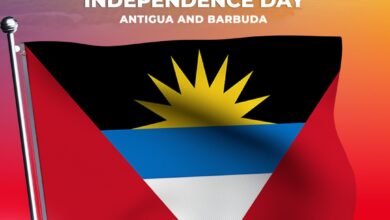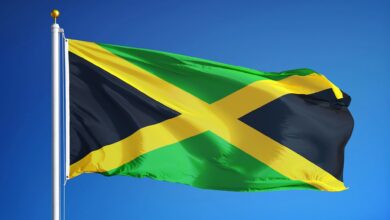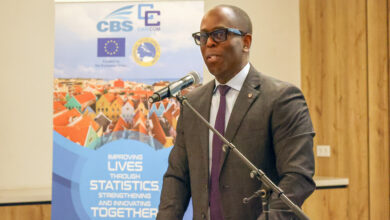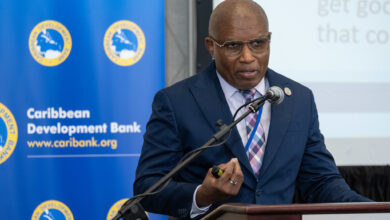The Second Work Programme of the European Commission/Caribbean Community (CARICOM) Secretariat-sponsored HIV/AIDS/STI initiative in the Caribbean was signed on 21 August 2001 at the CARICOM Secretariat.
The Work Programme and Cost Estimates for 1 July to 31 December 2001 involve activities that will incur an expenditure of US$ 1.063 million. The regional institutions involved in the programme are the Caribbean Epidemiology Centre (CAREC), the Caribbean Health Research Council (CHRC), the University of the West Indies (UWI), the UNAIDS Regional Office, the Caribbean Regional Network for People Living with AIDS (CRN+) and the CARICOM Secretariat.
Important outputs anticipated at the conclusion of the July 2001 – December 2001 Work Programme are:
- Review and development of medical, nursing and social science curricula UWI;
- Review of regional Mother to Child Transmissions experience by CAREC;
- Strengthening of the regional CRN+ network through the holding of 4 in-country capacity building workshops;
- Conduct of annual in-country training in STI (sexually transmitted infections) management by CAREC
- Conduct of annual regional training courses in HIV/AIDS/STI for media professionals by CAREC in collaboration with UWI;
- Conduct of the annual meeting of regional epidemiologists by CAREC;
- Conduct of workshops and seminars for business and trade unions, by CAREC in collaboration with UWI;
- Conduct of operational research on HIV/AIDS/STI-related issues, managed by CHRC
- Conduct of 1 in-country programme review by CHRC.
The project is being implemented under the Pan Caribbean Partnership against HIV/AIDS, which was established in 2001 at the Inter-Sessional Conference of the Caribbean Heads of Government held in Barbados. The start-up of this regional initiative has since paved the way for further financial support from agencies such as the World Bank, the Canadian International Development Agency (CIDA) and USAID, while the United Kingdom Department for International Development (DFID) has expressed an interest in supporting the project.
The Work Programme is being coordinated by the Human and Social Development Programme of CARICOM and implemented in the fifteen Member States of CARIFORUM, which includes the Dominican Republic and Haiti.
When completed in 2004, it is expected that the programme will yield several benefits including a pool of skilled personnel able to contribute to effective policy development, planning and implementation of HIV/AIDS/STI programmes in the Caribbean; increased awareness about the benefits, costs and operational feasibility of programmes to reduce mother-child transmission of HIV/AIDS; an expanded and effective regional network of people with HIV/AIDS in six countries working for improved care and support and contributing to national policy development.
The regional initiative will also influence improvement in the regional capacity to design, implement and evaluate programmes to reduce high-risk behaviour related to the spread of HIV/STI infection in addition to the provision of more comprehensive and accurate information on the course, consequences and costs of the epidemic through improved surveillance, monitoring and evaluation of national control programmes.
PROJECT IMPLEMENTATION UNIT
57 High Street, Kingston, Georgetown
Tel: 223-9016; Fax: 223-9012





